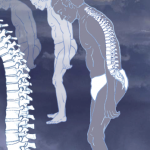Abstract 0493—Automatic Joint Space Assessment in Hand Radiographs with Deep Learning Among Patients with Rheumatoid Arthritis
Dr. Solow: Rheumatology patients are experiencing shortages in providers, and this will be exacerbated in the coming years. Other specialties, too, are feeling the shortage of available providers. Outsourcing specific tasks to computers that improve patient care and can be standardized is the (near) future. This study shows computer algorithms can detect and classify radiographic changes on par with rheumatologists. Computers should not replace providers. However, additional data that can be generated by computers to expand the patient story enhances our ability to care for patients.
Abstract 1445—Citrulline Reactive B Cells Are Present in the Lungs of Risk RA and Early Untreated RA
Dr. Solow: Where does RA start? This study isolated citrulline-reactive B cells producing pathogenic anti-citrullinated protein antibodies in the lungs of seropositive early stage RA patients. This finding supports the lung as a key site in the early phase of RA.
Abstract 0431—Hydroxychloroquine Use Was Not Associated with QTc Length in a Large Cohort of SLE and RA Patients
Dr. Solow: Given the cardiac events that occurred during the COVID-19 pandemic in the setting of using hydroxychloroquine (HCQ), providers are looking for any data that can guide the best steps in the care of patients with rheumatic disease . This study assessed prolonged QTc in RA and systemic lupus erythematosus. Those on HCQ did not have a prolonged QTc compared to those not on medications. Risk factors that were associated with prolongation included age, prednisone use and smoking, but, notably, not HCQ. However, this was a small, cross-sectional study and could not assess cumulative HCQ dosing, and excluded those with known cardiovascular disease.
Visit the ACR’s Meeting Abstracts site for more research presented at ACR Convergence 2020.
[Back to the Resource Center.]



